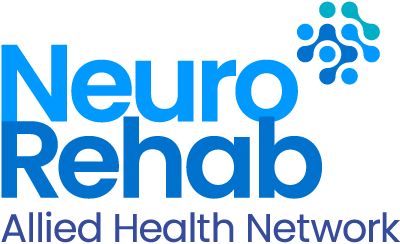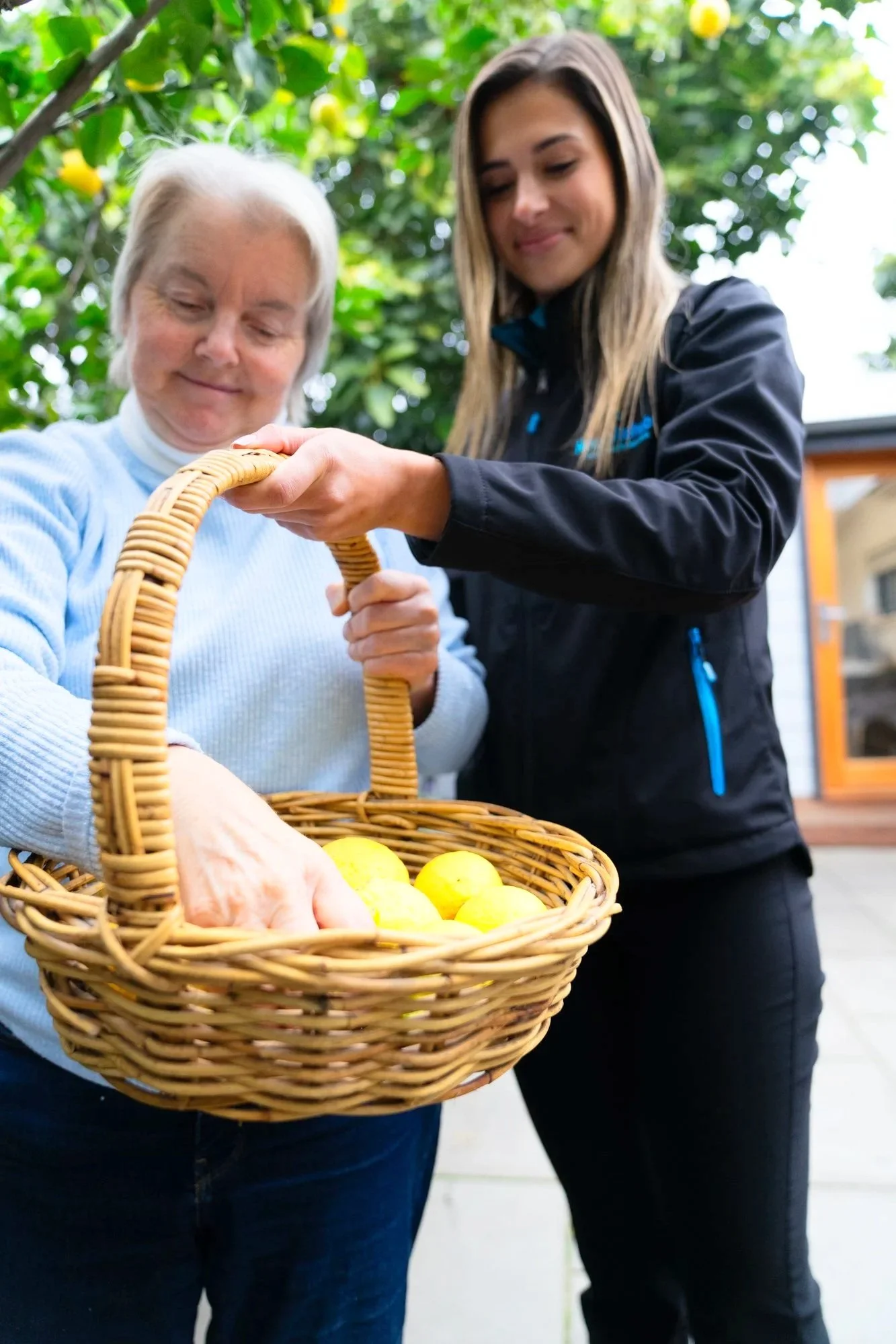Support at Home – Allied Health Services
At NeuroRehab, we work alongside older adults who want to stay independent and safe at home, while living with a neurological condition such as Parkinson’s disease, stroke, multiple sclerosis, or dementia.
Through the Australian Government’s Support at Home program, our team provides personalised allied health care that builds confidence, supports recovery, and makes everyday life easier.
Whether you, or a loved one are looking to improve your strength, manage a new diagnosis, recover after a hospital stay, or simply maintain your mobility and independence, we’re here to help.
Quick
capacity
Appointments
available now
What is the Support at Home program?
Support at Home is part of the aged care system in Australia. It provides government-funded services to help older people live safely and independently in their own homes.
This program replaces the former Home Care Packages (HCP) and Short-Term Restorative Care (STRC) programs. It includes funding for ongoing therapy, short-term recovery support, assistive technology, home modifications, and end-of-life care.
You will be assigned a Care Partner to coordinate your services. NeuroRehab works with your Care Partner to deliver the therapy supports you need, in line with your individual goals and aged care plan.
Our allied health services under Support at Home
We offer a wide range of therapies to help older people reach their health and lifestyle goals at home. Our experienced team supports clients across Melbourne and regional Victoria, with mobile and telehealth options available.
Physiotherapy
Our physiotherapists help older adults maintain or regain movement, strength, balance, and confidence. We support people managing neurological conditions such as stroke, Parkinson’s disease, multiple sclerosis, or neuropathy, as well as those living with frailty, dizziness, or recovering after surgery or hospitalisation.
Therapy may include tailored exercises to improve walking and coordination, retraining movement after injury or illness, and practical strategies to reduce falls and stay mobile at home. Physiotherapists can also provide pain management techniques, posture advice, and mobility aid prescriptions such as walkers or wheelchairs, ensuring every program supports safety and long-term function.
Occupational Therapy
Our occupational therapists (OTs) focus on helping you stay independent in daily life. We work with older adults to build the skills and confidence needed to manage personal care, cooking, household tasks, and community activities.
For older people with neurological conditions, OT can include retraining of upper limb function, cognitive strategies for memory and attention, or adaptive equipment to support independence after stroke, brain injury, or progressive conditions like Parkinson’s or dementia, as well as the typical functional changes that come with ageing. We also assess home safety and recommend assistive technology or modifications such as walkers, grab rails, ramps, or bathroom changes to make life easier and safer.
Speech Pathology
Our speech pathologists support communication, swallowing, and cognition for people living with neurological or age-related conditions. This includes therapy for speech clarity, voice volume, language comprehension, and safe eating and drinking.
We regularly assist clients following a stroke or with progressive neurological conditions such as Parkinson’s disease, multiple sclerosis, dementia and more. Therapy may involve swallowing assessments, Mealtime Management Plans (MMP), Eating and Drinking with Acknowledge Risk plans (EDAR), dysphagia assessments, home-based exercises, or communication aids like AAC devices. We also help families and care partners understand how to best support communication at home, so clients can stay connected and confident.
Exercise Physiology
Our exercise physiologists (EPs) design movement-based programs to improve mobility, endurance, and wellbeing in older adults. Exercise plays a vital role in maintaining independence and preventing deconditioning, especially for people living with neurological or mobility challenges.
We create safe, tailored exercise plans that target strength, balance, coordination, and fatigue management. For clients with neurological conditions, sessions may include gait training, mobility drills, and education on posture and movement patterns. EPs also assist with long-term health goals such as falls prevention, pain management, and cardiovascular fitness to support healthier ageing.
Psychology
Our psychologists provide assessment and capacity-building support to help older adults and their care teams better understand how neurological changes affect memory, thinking, and behaviour.
We conduct a range of cognitive and capacity assessments to support aged care planning, therapy participation, and everyday decision-making. These assessments can help identify areas of strength and need, guide recommendations for supports, and assist families and Care Partners in understanding how to best provide assistance.
Psychologists may also deliver capacity-building interventions, such as strategies to improve memory, attention, problem-solving, or daily task management. Our goal is to help people maintain autonomy and quality of life while living with neurological or cognitive changes.
Dietetics
Our dietitians help older adults make food and nutrition choices that support their health, energy, and independence. Nutrition can play a significant role in managing neurological and age-related conditions, including stroke recovery, Parkinson’s disease, multiple sclerosis, and dementia.
Our team provides tailored advice to support swallowing safety, gut health, and overall wellbeing. Dietitians can assist with meal planning, texture modification for safe swallowing, hydration, and management of conditions such as diabetes, weight loss, or malnutrition. We also collaborate with speech pathologists and occupational therapists to ensure mealtime support is safe, practical, enjoyable, and aligned with your care plan.
Allied Health Assistants
Our allied health assistants (AHAs) work closely with your treating therapists to help you continue practising your therapy program between appointments. They deliver supervised exercise, functional training, or communication activities to reinforce your therapy goals and ensure ongoing progress.
AHAs play an important role in providing consistent and practical therapy support, especially for people working on long-term goals like mobility, daily task retraining, or speech and swallowing exercises. This approach helps you stay on track and maintain improvements between visits.
What types of funding are available?
There are four main types of Support at Home funding. Your Care Partner will help you understand which applies to you.
1. Ongoing support
Regular therapy funded across the year, with flexibility to meet your changing needs. There are eight funding levels depending on how much support you need.
2. Restorative care
Short-term, intensive support (up to 16 weeks) to help you recover function, manage a new condition, or avoid hospital. Up to $6,000 available per episode.
3. Assistive technology and home modifications (AT-HM)
Funding for equipment or home changes that make life safer and easier. This could include mobility aids, ramps, handrails, or communication tools.
4. End-of-life care
Funding to support older people who wish to stay at home during the final stage of life, including $25,000 over 12 weeks for eligible clients.
Our approach
We take a wellness and reablement approach to aged care. This means:
Building on your strengths and preferences
Supporting you to do things for yourself, not just have things done for you
Focusing on practical, goal-based outcomes
Collaborating closely with your Care Partner, family, and any registered supporters
Supporting you with respect, dignity, and empathy
We tailor therapy to your lifestyle, your home environment, and what matters most to you.
Getting started with NeuroRehab
To access our services under Support at Home, you’ll need to have an Aged Care Assessment. Your Care Partner can then work with you to choose the right supports.
Already have a Care Partner and plan? You or your Care Partner can make a referral directly to our team.
Make a referral or speak with our team
Phone: 1300 13 16 19
Email: services@nrah.com.au
Online: referral form
Locations: Home, community and clinic services across Melbourne’s north, west and south, plus Albury, Hobart and surrounding areas. Telehealth is available Australia-wide.
Resources
LSVT Loud® for Parkinson’s disease
Lee Silverman Voice Treatment (LSVT) Loud® is a specialised speech therapy program for people with Parkinson’s disease. It focuses on improving vocal loudness and clarity through structured, high-intensity exercises. The program helps individuals enhance their ability to communicate confidently and effectively in daily life, ensuring their voice is heard and understood. Click the link to download the flyer.
Improve your communication
We tend to think of communication as talking, gesturing, and using sign language, words and symbols. Our speech pathologists can help people find their voice through a range of communication strategies. Click the link to download the flyer.
Mealtime management and dysphagia
Dysphagia is the medical term for swallowing. Swallowing is something we do hundreds of times a day. Difficulties swallowing lead to serious health issues. Safe swallowing requires good coordination of multiple sensory messages and muscles. Click the link to download the flyer.
Exercise physiology flyer
Click the link to download the Exercise Physiology flyer.












